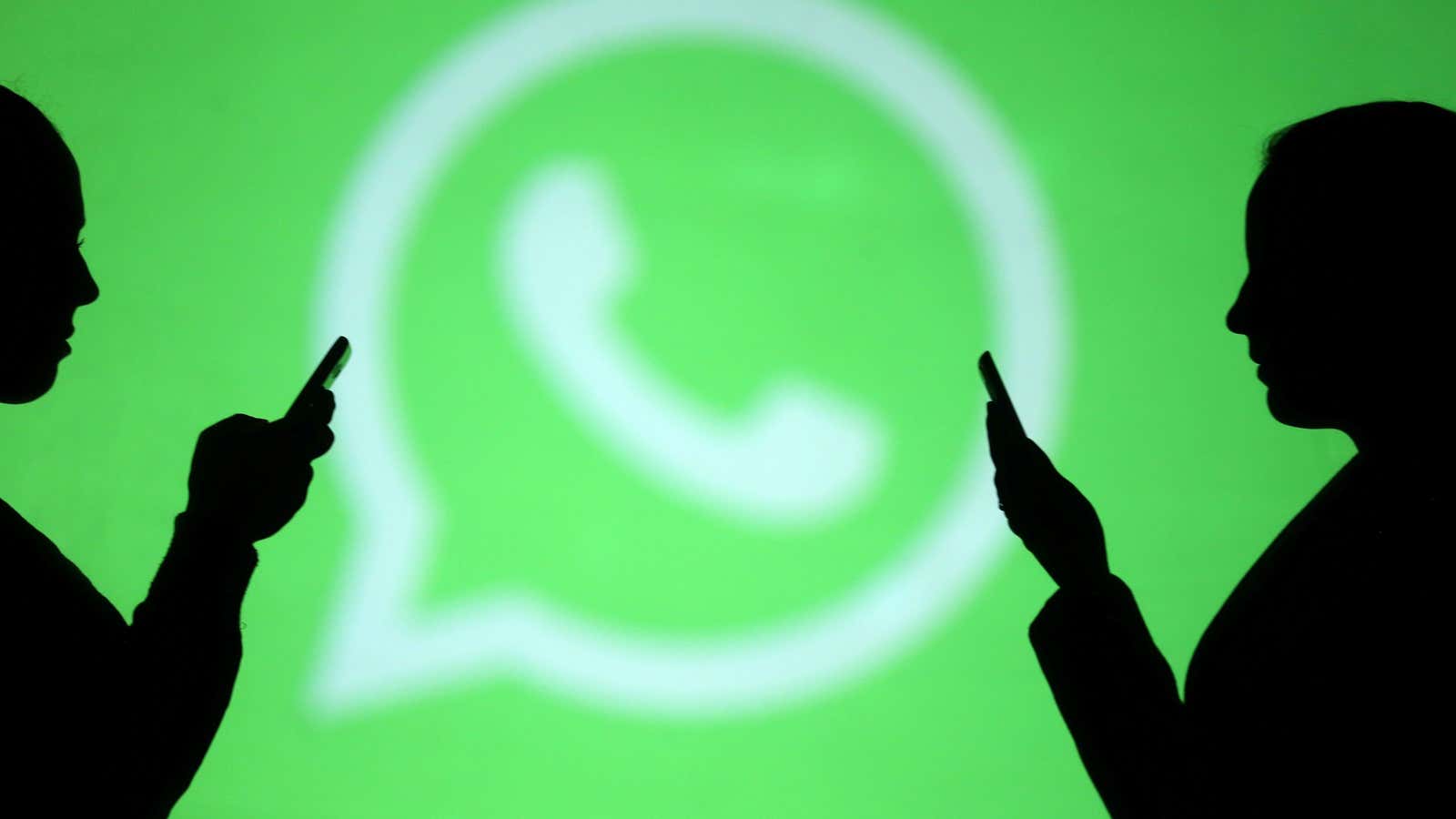As South Africa’s top social media platform, Whatsapp has taken on Mxit, Blackberry Messenger (BBM) and more recently, WeChat. In all three instances, Whatsapp established itself as the most affordable and convenient messaging service in a country whose internet penetration is 54%.
But a new messaging app with its promise of data-free messaging presents a unique challenge to Whatsapp’s dominance. Of the 18 million South African active social media users, almost half them spend most of their time on Whatsapp, with coming second is Facebook (which owns WhatsApp).
Moya Messenger describes itself as a “world first #datafree messaging app.” It was launched by biNu, an Australian company that opened its South African office in 2014, the app is part of the company’s focus on providing affordable Internet access that doesn’t require high speed connection.
It already has partnerships with South Africa’s major mobile network operators (MTN, Vodacom, Cell C, Telkom), and is promising all of the convenience of Whatsapp without the cost of data. And for South African users, the cost of data is a sore point, with celebrities, politicians and the Independent Communication Authority of South Africa (Icasa) calling for regulations in data pricing.
Although there have been improvements for consumers in recent months with lower costs and longer duration of data bundles, it’s still a notable expense. Moya Messenger’s data-free messaging is a potential massive draw for users. With no need to load airtime or buy data bundles for messaging, Moya Messenger also offers features such as end-to-end encryption and group chats and automatic contact discovery. For potential users, it’s all of the benefits of Whatsapp without the cost, but it’s unclear if it’ll be enough to present a serious challenge.
One hurdle is that while it promises unlimited text messages, Moya Messenger’s data-free slogan doesn’t include message attachments. So users would still need to pay for data to share the photos, videos and gifs that are really the lifeblood of what takes WhatsApp from a mere utility messaging tool to social media platform. Also, the free messages only work with mobile networks compatible with the app which could limit the use for those messaging to countries outside South Africa where Moya isn’t available.
Users will also need mobile data to switch the app on, but not to send and receive messages. Furthermore, the app is only currently available for Android users, and whilst Android has the lion’s share of the market, the 20% of people who own iPhones are unable to use Moya Messenger.
Perhaps learning from the rise and fall of Mxit and WeChat, biNu has made an effort to create an easy to use messenger app that isn’t too far removed from Whatsapp’s user-friendly basic style and options. So far over 10 000 users have installed the app after its recent launch, Moya Messenger is off to a good start against Whatsapp’s millions of South African users.
